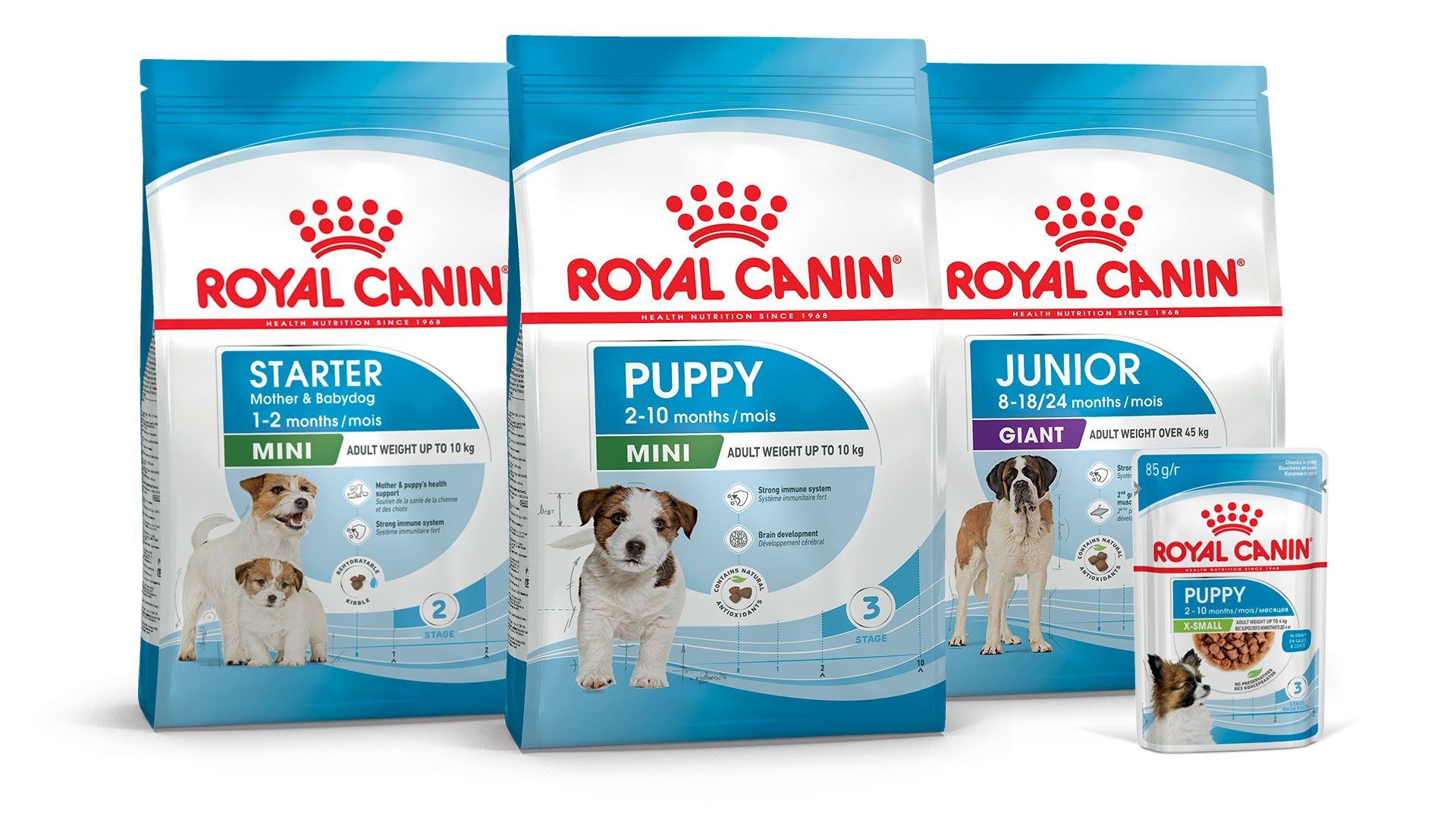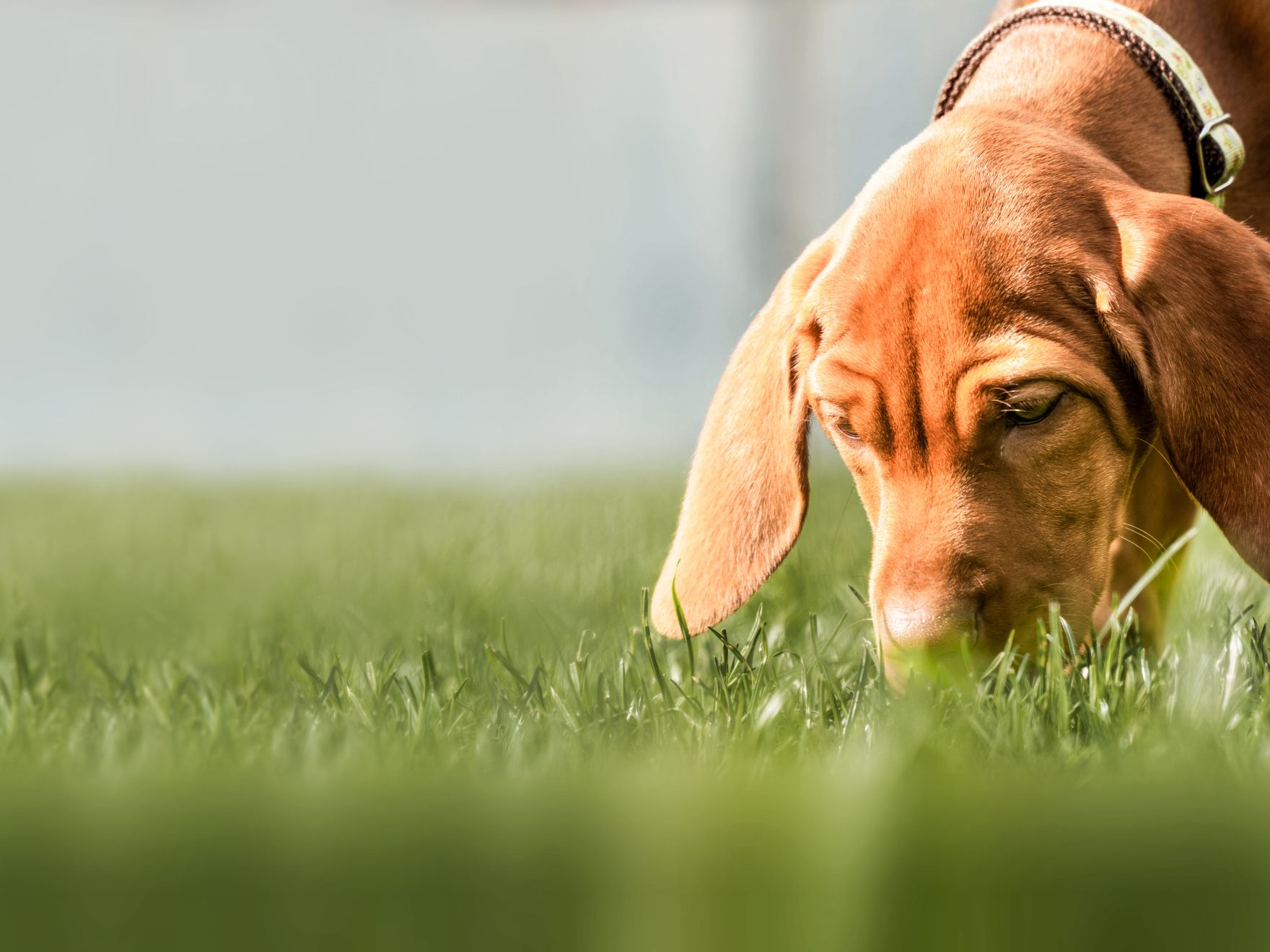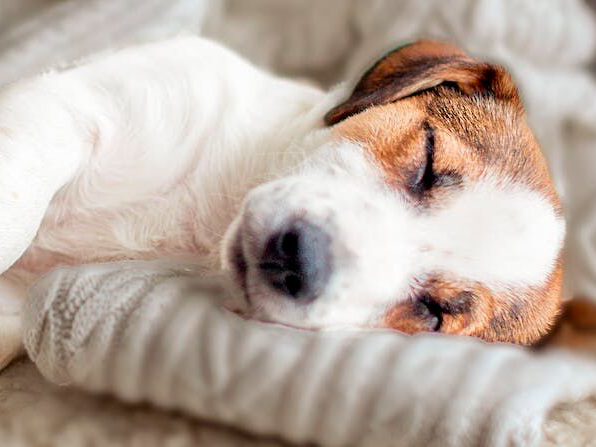Puppy training and play
Training and play are key to your puppy’s healthy development. A well-trained and obedient puppy is more likely to become a well-balanced and happy adult dog.
The many reasons to train your puppy
A well-mannered dog is everyone's ideal, but it doesn't happen by accident. Teaching your dog to navigate the world around them takes consistency and creativity. Young puppies' brains are prime for learning – manners, house training and safety skills. Positive reinforcement, play and repetition work is far more effective than outdated fear-based training methods.
The benefits of puppy training are exercise, cognitive growth, and safety. Physical activity expends excess energy. Your puppy's cognitive skills are still developing, so play that requires reasoning teaches problem-solving and memory skills. And it's fun to watch a puppy figure out a problem! It all counts as mental stimulation and can be as tiring for them as physical exercise.
As you play with your puppy, you're also teaching them how to play. Biting, nipping, herding and jumping can be dangerous if fragile adults or young children are present. Puppies learn this through socialisation and playtimes. Play sessions and training help your puppy learn your expectations. Commands such as sit, lie down, and wait make for a peaceful co-existence. And a reliable recall skill may save your puppy's life in the future.
The keys to a good training session
- Reward good behaviour—with praise, affection and treats
- Keep training sessions short and frequent. Puppies have short attention spans
- Start early and be consistent. Repetition works
Puppy training classes allow your puppy to learn socialisation and gain new skills under the supervision of a professional. Never hesitate to ask for help if you have questions or need expert advice.
Your puppy will not immediately remember everything they've learned; it takes patience. Be sure to use positive reinforcement, meaning rewarding their good behaviour – it works best.
Training treats should be low-calorie treats, given individually – remember to adjust their meal portion to avoid excess calories – praise and affection, or a couple of minutes of play with their favourite toy.
Discover the right food for your new companion
Answer a few questions about your dog to discover a personalised food recommendation.
Teaching your puppy the basics
Training a puppy means progress, not perfection, in daily training sessions. Puppy training games teach puppies the basics in a fun, exciting way. Obedience training teaches sitting, lying down, staying, heel, and coming when called, including crate training and house training. How you present them sets the tone for the session. A friendly tone of voice encourages keen attention.
You can start right away with this skill and practise it daily.
- Sit facing your puppy with a low-calorie treat in hand
- Hold the treat in front of their nose, giving the puppy a good whiff
- Raise the treat up over the puppy's head. Your puppy will sit naturally as it looks up at the treat
- When your puppy sits, give praise and a reward
- Repeat several times a day. Take advantage of opportunities to train
- When the puppy consistently sits, gradually remove the treat for verbal cues
- Sit directly facing your puppy, holding a treat in front of their nose
- With the puppy sitting, lower the treat between your pup's front paws and drag the treat back towards you. Your puppy should stretch forward until they are lying down
- When your puppy reaches the down position, praise and reward
- Repeat several times throughout the day
- When the skill is consistent, replace the treat with verbal cues
- Use an enclosed area, garden, or in the house
- Let the puppy wander around for a few seconds
- Crouch down and call their name with an excited voice tone
- Make sure your puppy comes all the way to you
- Give lots of praise and low-calorie treats
- Start with a short distance, gradually increasing it as your puppy responds correctly
- Walk away from your puppy and repeat the process
- With your puppy sitting facing you, put your hand, palm forward in front of their face, and say the command ‘stay’
- Wait a couple of seconds. Reward and release your puppy when they remain in place
- Place your puppy back in the sitting position
- Take a step back and repeat the stay command and gesture. Wait another couple of seconds Reward and release your puppy
- Repeat the process, increasing the distance and time your puppy remains in place
- Replace the treat with verbal cues and gestures when the skill is consistent
Best practices when it comes to treats
Treats are a great way to incentivise your puppy when training. They should always be taken out of your dog’s daily food ration—if you take a small handful of treats on a walk, weigh them and subtract that from your puppy’s next meal. Always use healthy/low-calorie treats, and slowly replace them with rewards (fuss etc) and verbal praise which are even more satisfying over the long run.

Our Puppy Growth Programme nutritional recommendations
Our products are designed to support your puppy’s growth, helping provide meaningful benefits thanks to specifically chosen nutrients for each stage of life.
Tips when playing with your puppy
Playtime is an opportunity for your puppy to learn new skills and commands. Puppies need regular daily play sessions. Combining them with your puppy’s training sessions maximises their learning.
Toys encourage curiosity, movement, and new textures. Puppies teeth care weak, so toys must be puppy proof. Ideally soft, long toys or interactive puzzle feeders.
Rubber toys or chews
Interactive treat toys
Puzzle feeders
Ropes and plushies
Toys should be the right size and safe for your puppy. A Golden Retriever puppy may accidentally swallow a toy made for a tiny Yorkie, and the Yorkie may not pick up or carry a toy meant for a large puppy.
A puppy that bites, jumps and nips needs to be discouraged. When it happens, stop playing for a few minutes and resume when they have calmed down.
How much exercise and play your puppy needs depends on age and breed. A Bichon Frisé or Basset Hound doesn't need as much as a Border Collie or Retriever. Watch your puppy for signs of fatigue and adjust playtimes accordingly.
Games to play with your puppy that also teach skills
Remember that mental exercise is as exhausting as physical exercise. Puppies need a good amount of both to be balanced and socialised dogs. Bored puppies might pick up unwanted behaviours or develop anxiety or phobias.
Play Hide and Seek
- Put your puppy into the sit/wait position
- Let your puppy watch you hide the treats or toys
- Return to your puppy and release them with the 'find it’ command
- Reward and praise when the treats have been found
- As your puppy gets better, make the hiding places harder with more items to find
- For a change, have your puppy find you by hiding and calling their name until they find you
The cup game
- Put a treat under a cup on a flat surface
- Let your pup sniff it out
- Praise success
- Change the game by moving a couple cups around, so the puppy must use their nose to sniff out the treat
- Praise success
Pass the puppy
This game teaches your puppy social skills, retrieving and coming when you call their name.
Play Pass the Puppy with two or more people. Have everyone sit on the ground with enough space in between you for the dog to travel a short distance.
- One person calls the dog by name using the come command. Reward success. Cuddles work too!
- The second person calls the puppy the same way, rewarding and praising success
- The game continues with everyone calling the puppy and rewarding arrival
Games that encourage independent play
Not all training games need to involve you, though it’s important to keep that pet owner-puppy interaction as well. Puppies should be able to entertain themselves when alone.
Training and play are vital to socialising and raising a well-rounded, happy adult dog. Combining training and play, teach your puppy valuable skills while having fun.

